
Henry Graham Greene was an English writer and journalist regarded by many as one of the leading novelists of the 20th century.

Murder on the Orient Express is a work of detective fiction by English writer Agatha Christie featuring the Belgian detective Hercule Poirot. It was first published in the United Kingdom by the Collins Crime Club on 1 January 1934. In the United States, it was published on 28 February 1934, under the title of Murder in the Calais Coach, by Dodd, Mead and Company. The UK edition retailed at seven shillings and sixpence (7/6) and the US edition at $2.

The Orient Express was a long-distance passenger train service created in 1883 by the Belgian company Compagnie Internationale des Wagons-Lits (CIWL) that operated until 2009. The train traveled the length of continental Europe, with main terminal stations in Paris in the northwest and Istanbul in the southeast, and branches extending service to Athens, Brussels, and London.
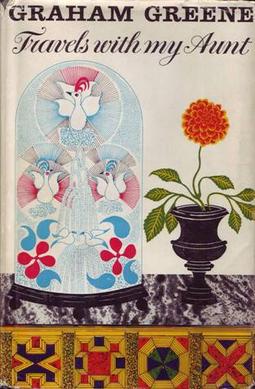
Travels with My Aunt (1969) is a novel written by English author Graham Greene.
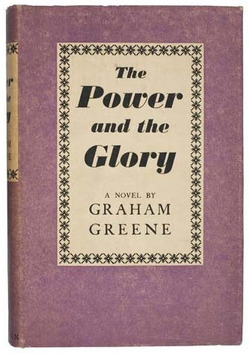
The Power and the Glory is a 1940 novel by British author Graham Greene. The title is an allusion to the doxology often recited at the end of the Lord's Prayer: "For thine is the kingdom, the power, and the glory, forever and ever, amen." It was initially published in the United States under the title The Labyrinthine Ways.

The Comedians (1966) is a novel by Graham Greene. Set in Haiti under the rule of François "Papa Doc" Duvalier and his secret police, the Tontons Macoutes, the novel explores political repression and terrorism through the figure of an English hotel owner, Brown.

Lionboy is a children's and young adult's fantasy trilogy written by Zizou Corder.
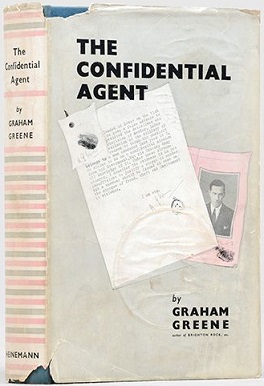
The Confidential Agent (1939) is a thriller novel by British author Graham Greene. Fuelled by Benzedrine, Greene wrote it in six weeks. To avoid distraction, he rented a room in Bloomsbury from a landlady who lived in a flat below him. He used that apartment in the novel and had an affair with the landlady's daughter. He wrote the book for money and was so displeased with his work that he wanted it published under a pseudonym. But critics took a far different view; The New York Times, for example, called the novel "a magnificent tour-de-force".
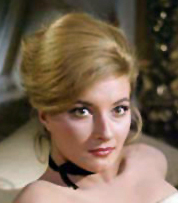
Tatiana Alexeievna "Tania" Romanova is a fictional character in the 1957 James Bond novel From Russia, with Love, its 1963 film adaptation and the 2005 video game based on both.
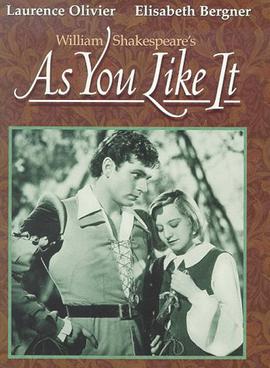
As You Like It is a 1936 British romantic comedy film directed by Paul Czinner and starring Laurence Olivier as Orlando and Elisabeth Bergner as Rosalind. It is based on William Shakespeare's play of the same name. It was Olivier's first performance of Shakespeare on screen.
Graham Greene (1904–1991) was an English novelist regarded by many as one of the greatest writers of the 20th century. Combining literary acclaim with widespread popularity, Greene acquired a reputation early in his lifetime as a major writer, both of serious Catholic novels, and of thrillers. He was shortlisted, in 1966 and 1967, for the Nobel Prize for Literature. He produced over 25 novels, as well as several plays, autobiographies, and short stories.

Journey Without Maps (1936) is a travel account by Graham Greene, about a 350-mile, 4-week walk through the interior of Liberia in 1935. It was Greene's first trip outside of Europe. He hoped to leave civilization and find the "heart of darkness" in Africa. The interior of Liberia was at the time poorly mapped, and so he relied on local guides and porters.

The Good Companions is a novel by the English author J. B. Priestley.

William Pembroke Fetridge (1827-1896) was a travel writer, publisher, bookseller and periodicals distributor. He lived in the Boston, Massachusetts area and in Paris, France.

It's a Battlefield is an early novel by Graham Greene, first published in 1934. Graham Greene later described it as his "first overtly political novel". Its theme, said Greene, is "the injustice of man's justice." Later in life, Greene classified his major books as "novels" and his lighter works as "entertainments"; he ranked It's a Battlefield as a novel and not a mere entertainment.
Algernon Islay de Courcy Lyons (1922–1993) was a Welsh photographer, novelist and linguist.

In Search of a Character: Two African Journals is a slim volume, part travel book, part novelist’s journal, written by English author Graham Greene and first published in 1961. Greene set two of his novels in Africa; A Burnt-Out Case, set in the Belgian Congo, and The Heart of the Matter, set in Sierra Leone. This book contains the journals, not originally intended for publication, that Greene kept on journeys he made for research purposes before writing those two novels.

The Underground Railroad is a historical fiction novel by American author Colson Whitehead, published by Doubleday in 2016. The alternate history novel tells the story of Cora, a slave in the Antebellum South during the 19th century, who makes a bid for freedom from her Georgia plantation by following the Underground Railroad, which the novel depicts as a rail transport system with safe houses and secret routes. The book was a critical and commercial success, hitting the bestseller lists and winning several literary awards, including the Pulitzer Prize for Fiction, the National Book Award for Fiction, the Arthur C. Clarke Award, and the 2017 Andrew Carnegie Medal for Excellence. A TV miniseries adaptation, written and directed by Barry Jenkins, was released in May 2021.

Orient Express is a 1934 American pre-Code drama film directed by Paul Martin and starring Heather Angel, Norman Foster and Ralph Morgan. It is based on the 1932 novel Stamboul Train by Graham Greene, the first of his works to be adapted for the screen. It was produced and distributed by Fox Film. Fox were persuaded to hire Martin as director by Lilian Harvey, the actress who was in a relationship with him, and had signed with the studio after starring in several films directed by Martin in Germany. It was his only Hollywood film and he returned to Germany where he again directed Harvey in several more hits. The film is part of a group set almost entirely on trains or ocean liners during the decade.
The Relic is a 1991 novel by British author Evelyn Anthony. It follows Lucy Warren, who inherits St. Vladimir's Cross on her father's death, and her romance with the Soviet dissident Dimitri Volkov. Published by HarperCollins on August 14, 1991, it received mixed reviews from critics.
















